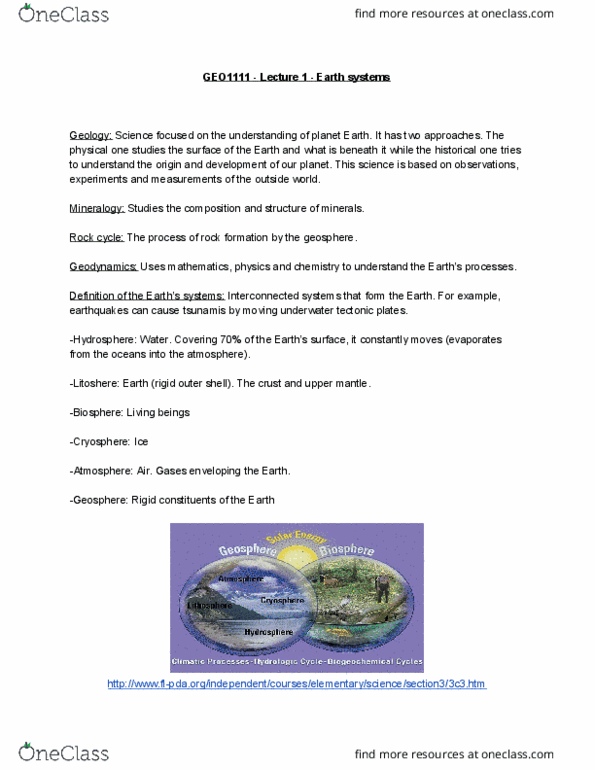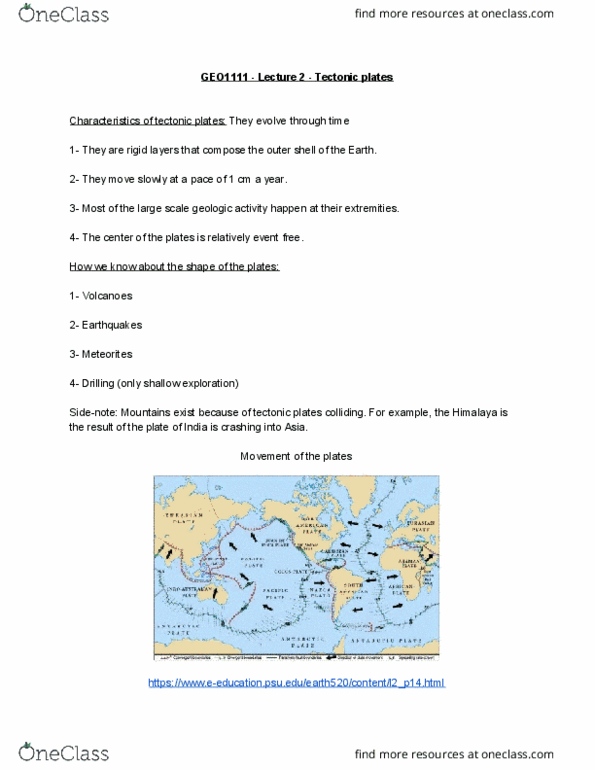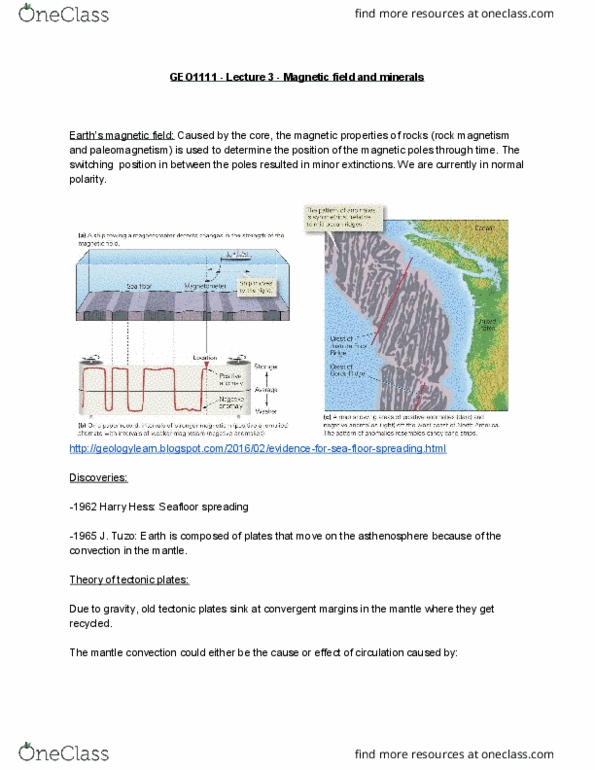GEO 1111 Lecture 1: Earth systems
GEO 1111 verified notes
1/9View all
Document Summary
Geology: science focused on the understanding of planet earth. The physical one studies the surface of the earth and what is beneath it while the historical one tries to understand the origin and development of our planet. This science is based on observations, experiments and measurements of the outside world. Mineralogy: studies the composition and structure of minerals. Rock cycle: the process of rock formation by the geosphere. Geodynamics: uses mathematics, physics and chemistry to understand the earth"s processes. Definition of the earth"s systems: interconnected systems that form the earth. For example, earthquakes can cause tsunamis by moving underwater tectonic plates. Covering 70% of the earth"s surface, it constantly moves (evaporates from the oceans into the atmosphere). Hydrologic cycle: results from the relationship between systems of the earth (atmosphere and hydrosphere). It begins with the evaporation of the water from the surface of the ocean. the damp air cools as it goes higher and water vapor it created condenses into clouds.





